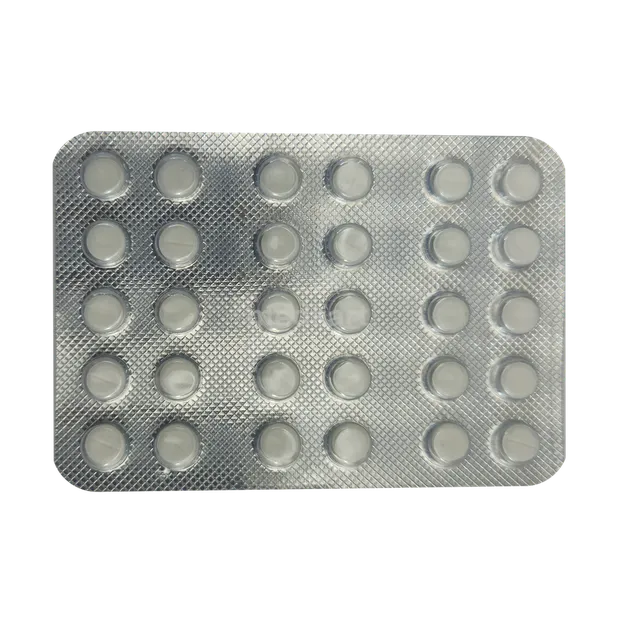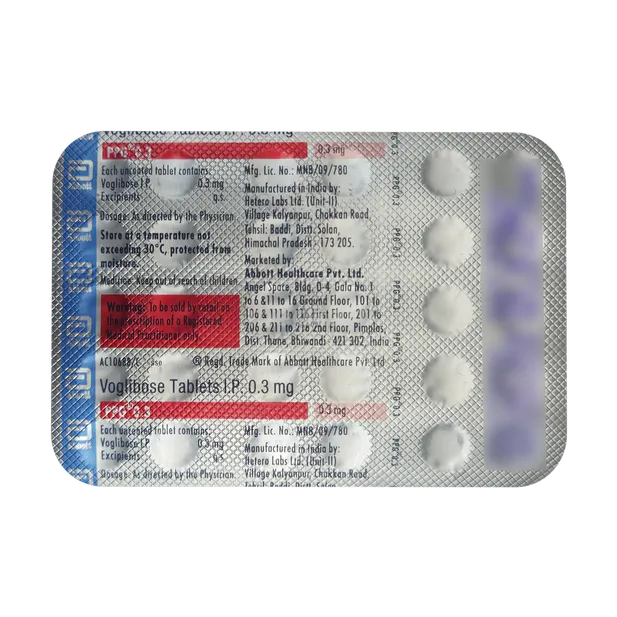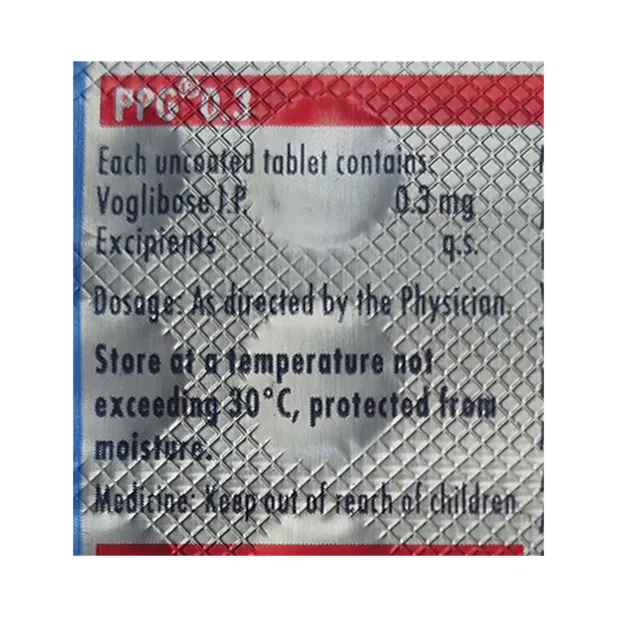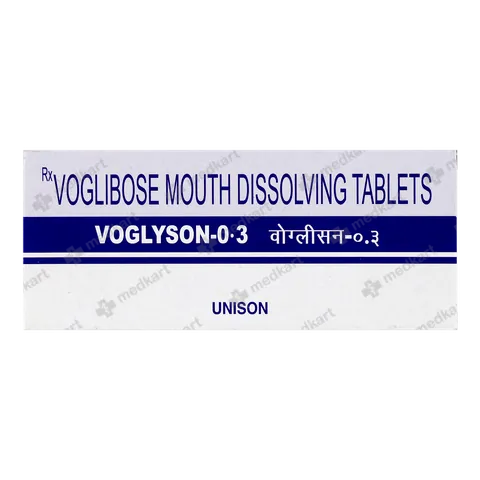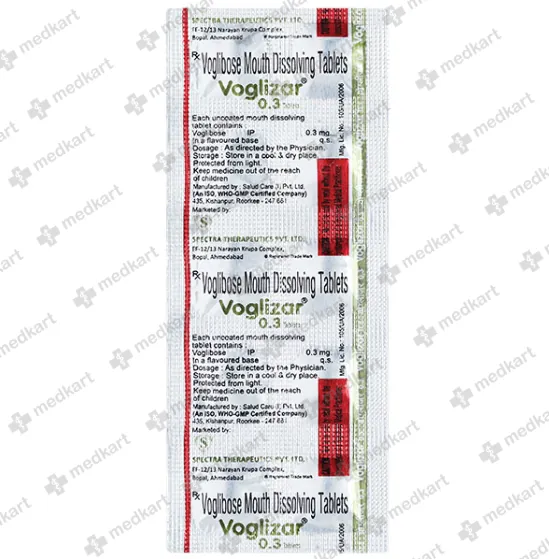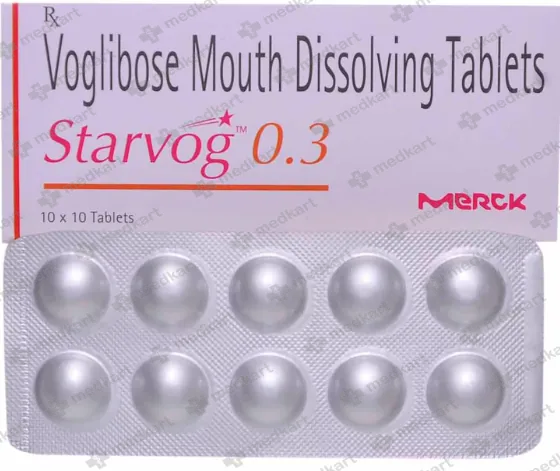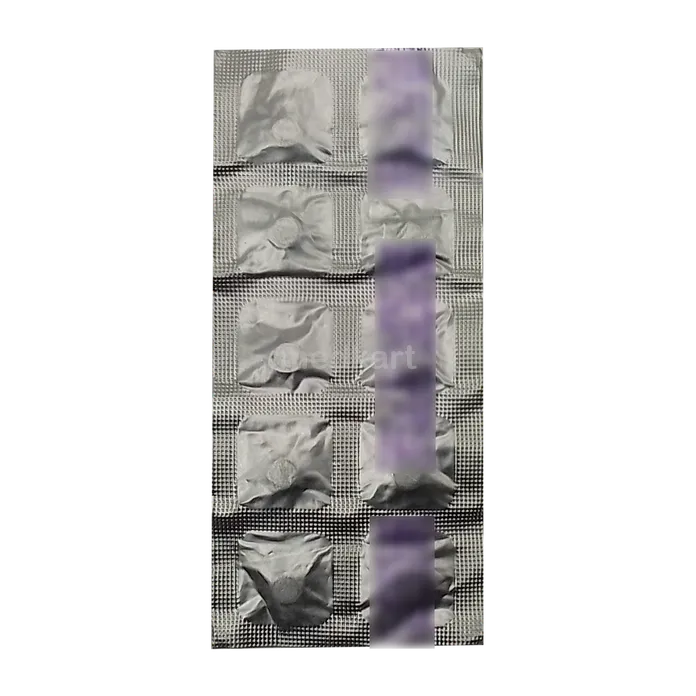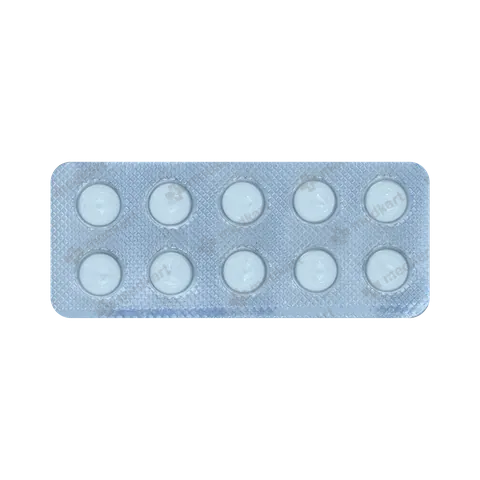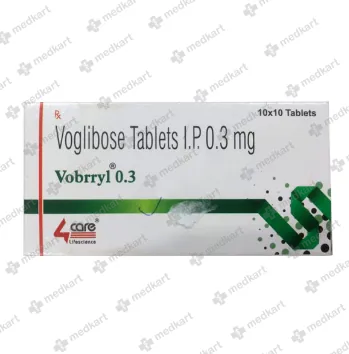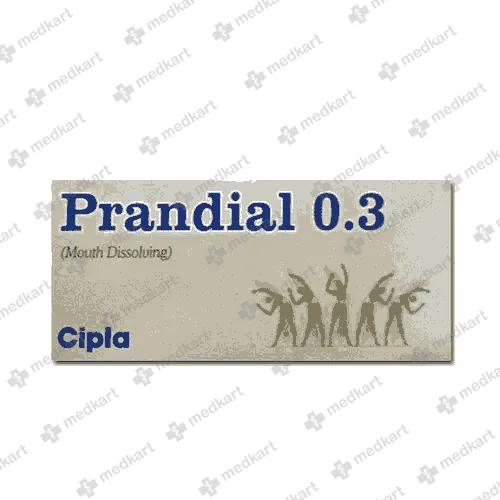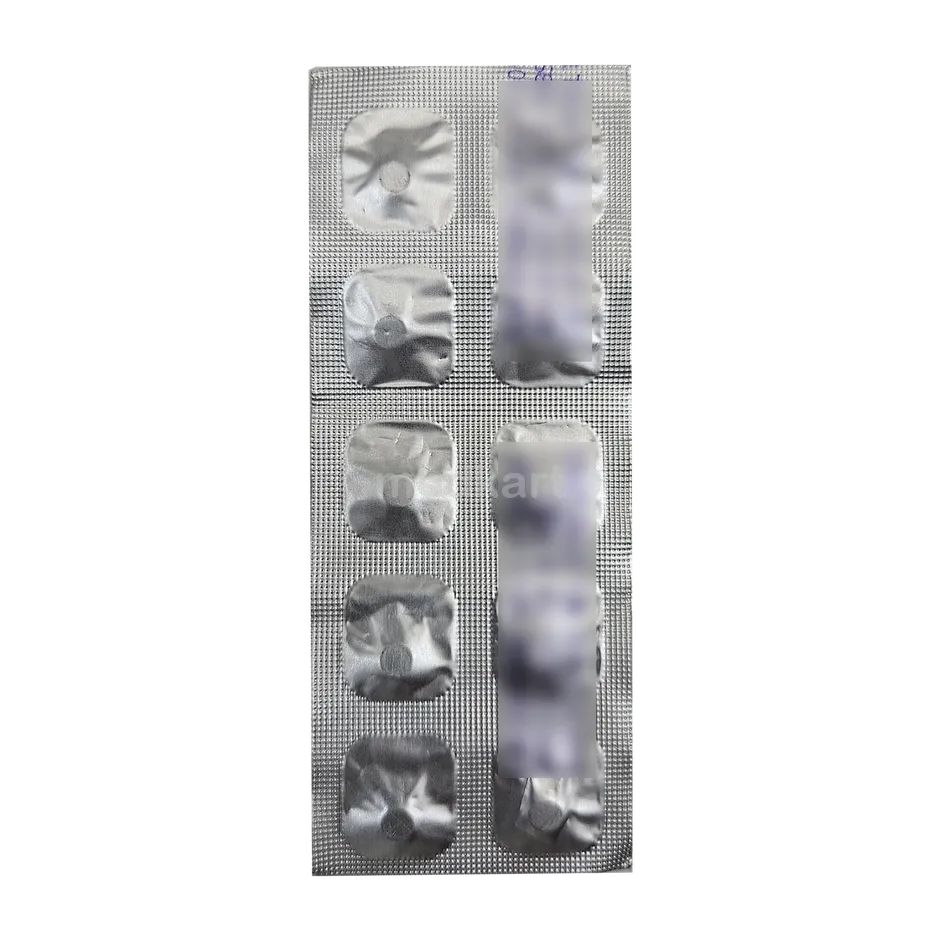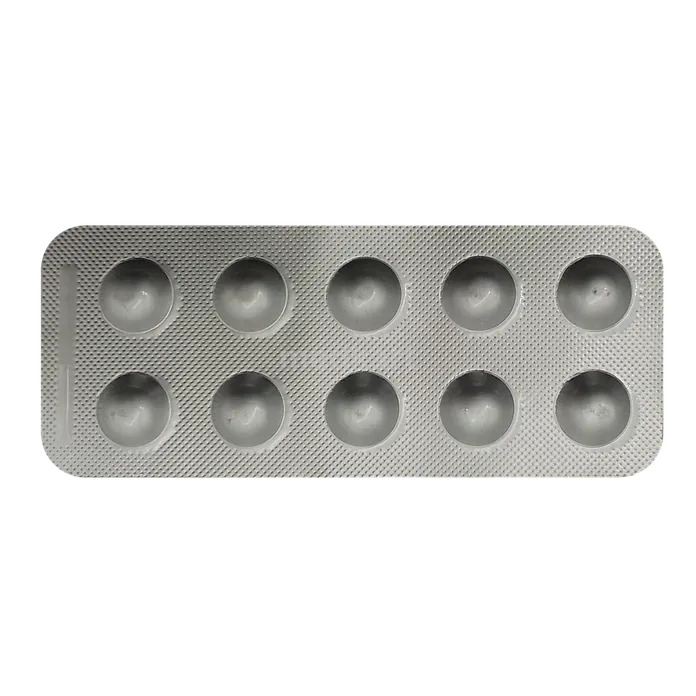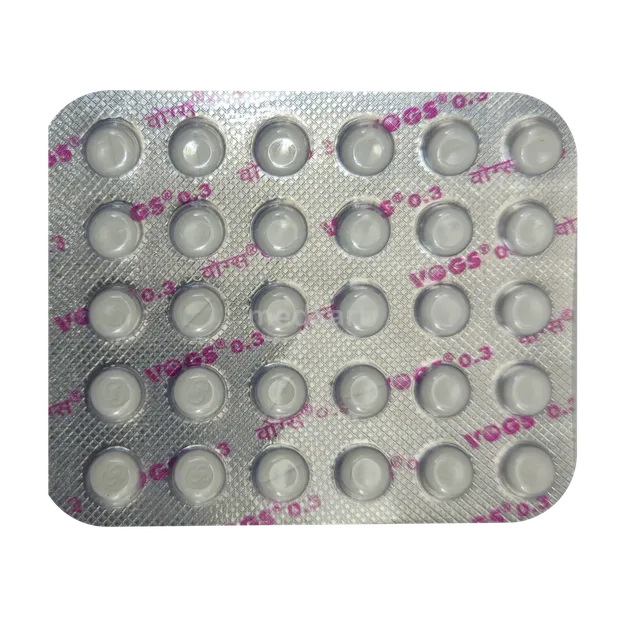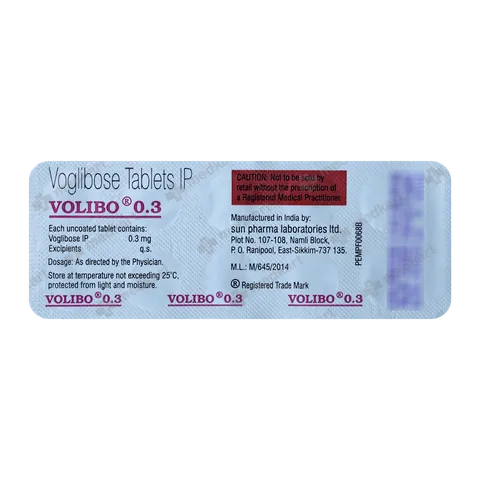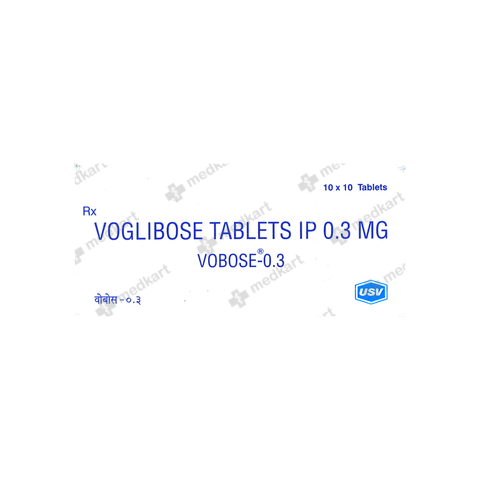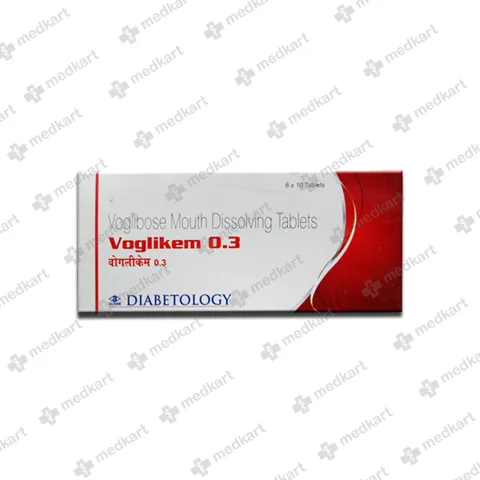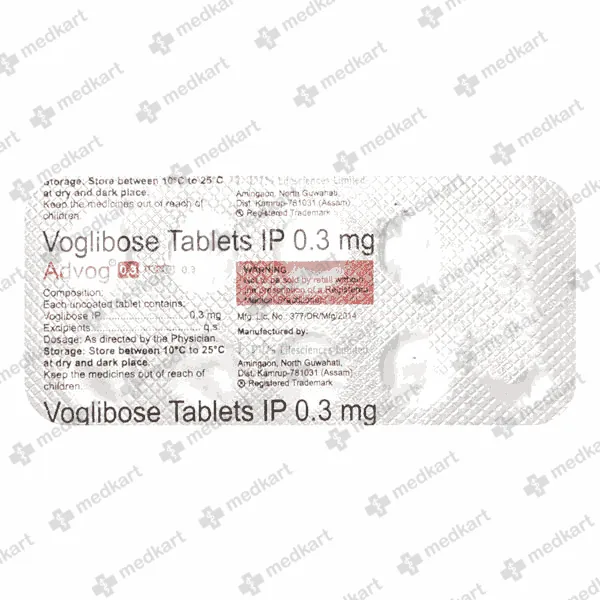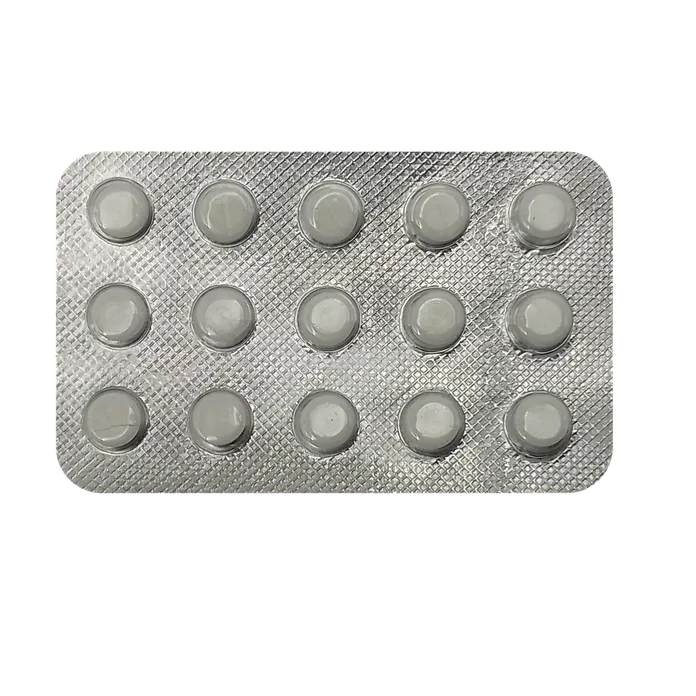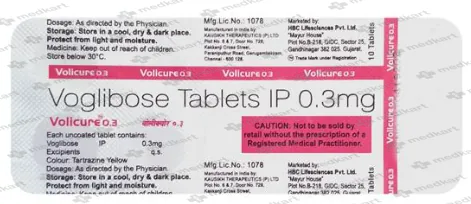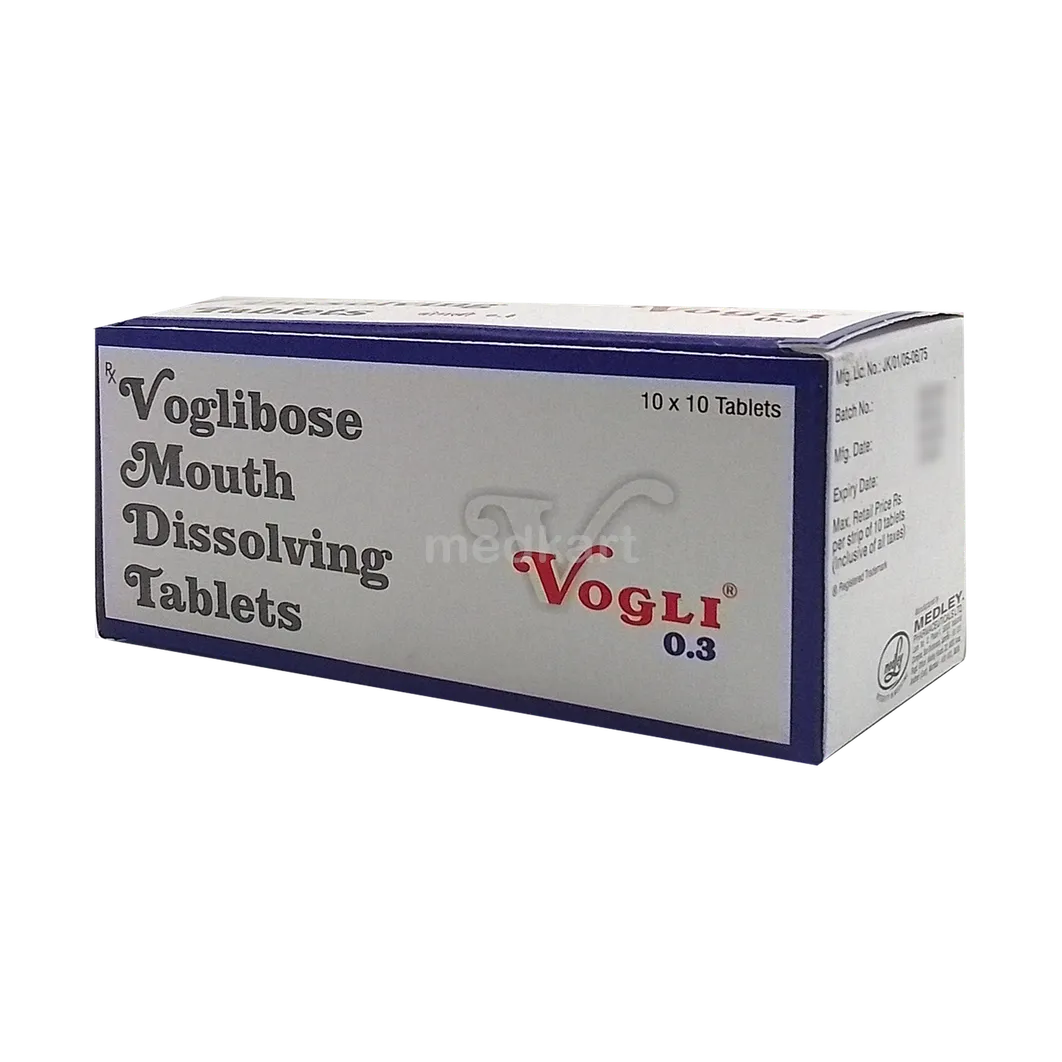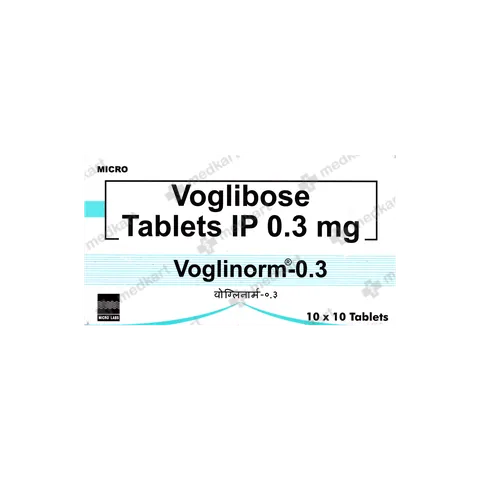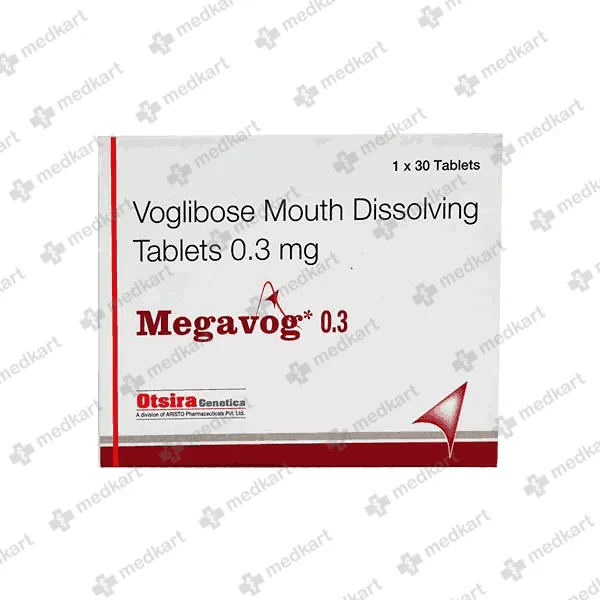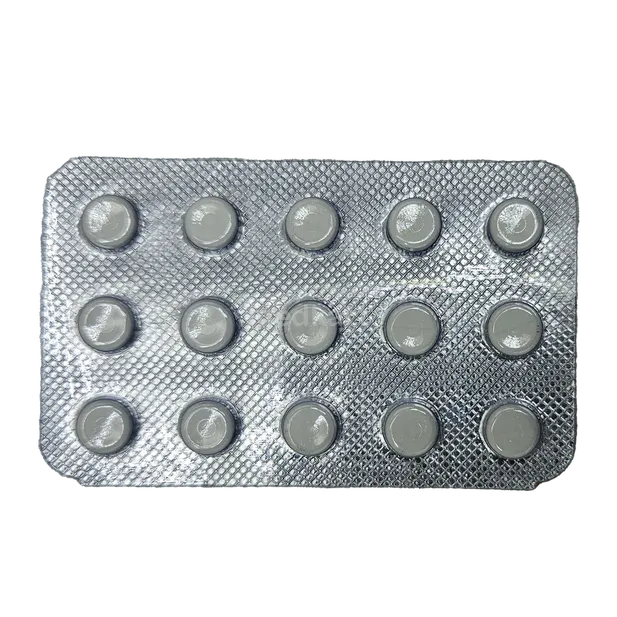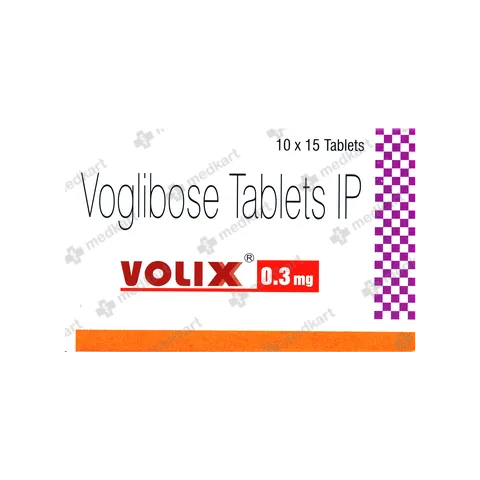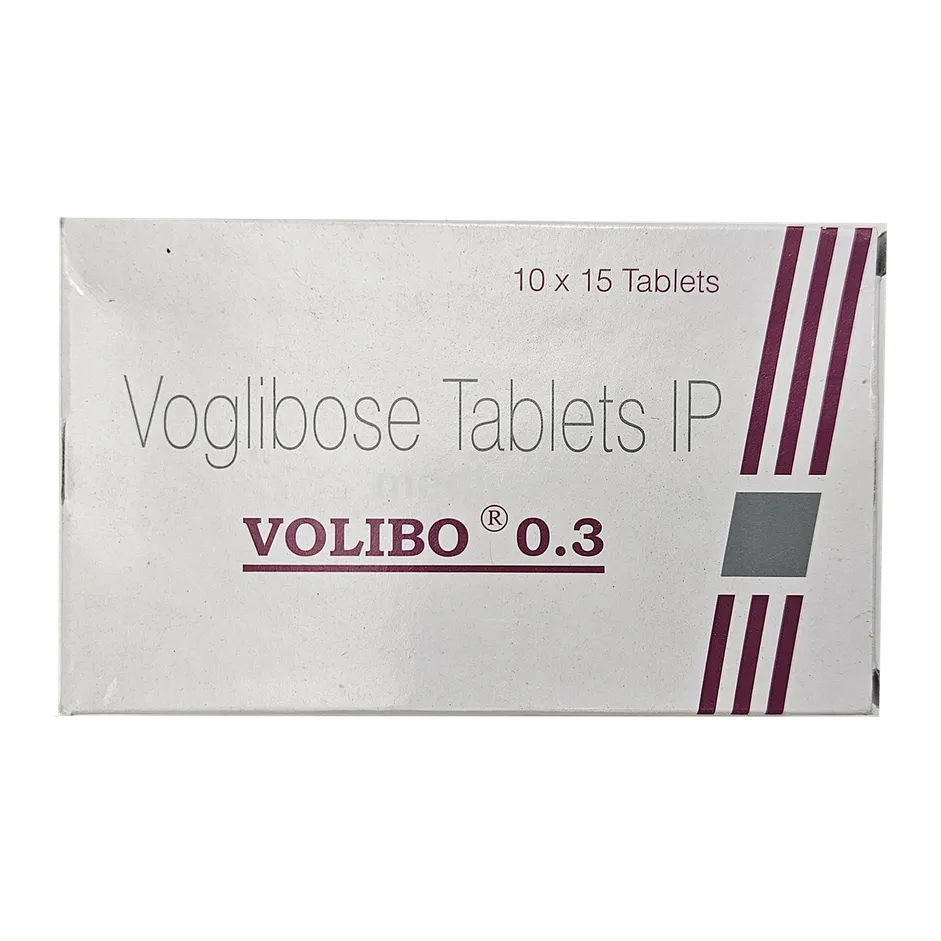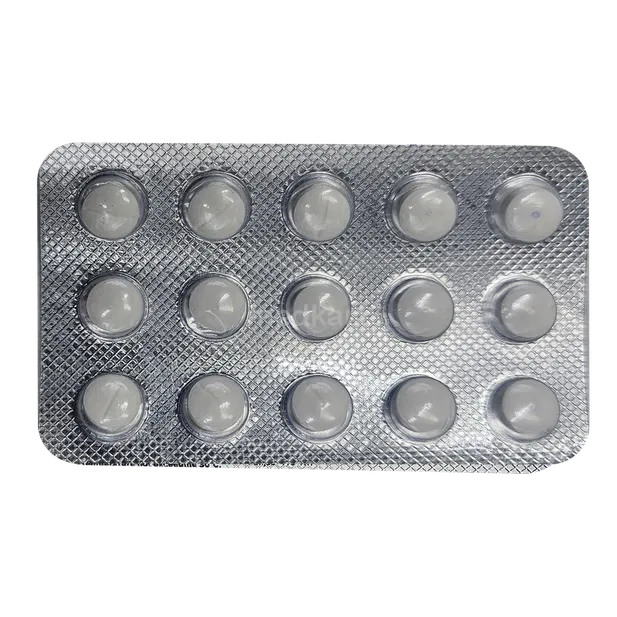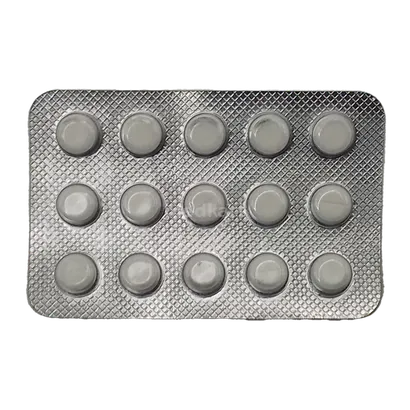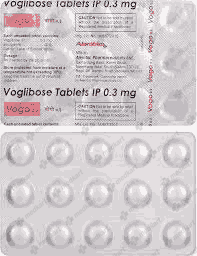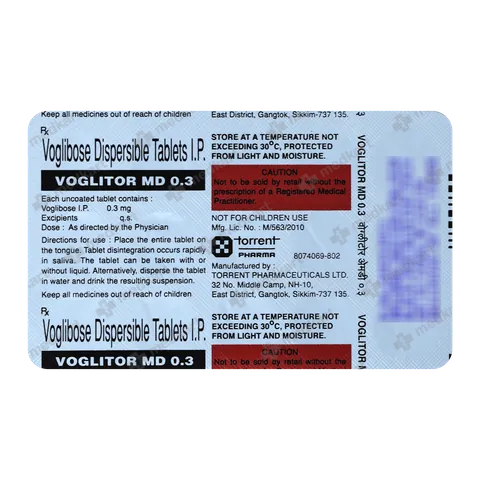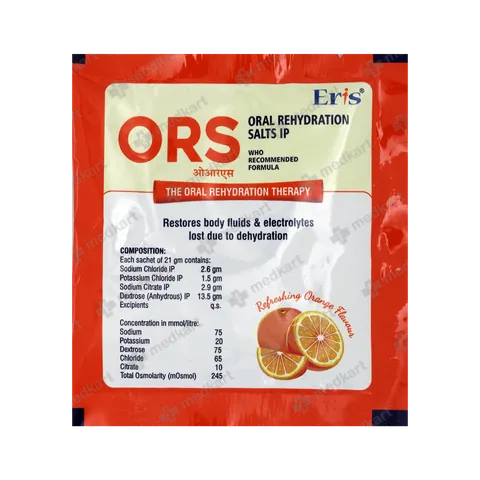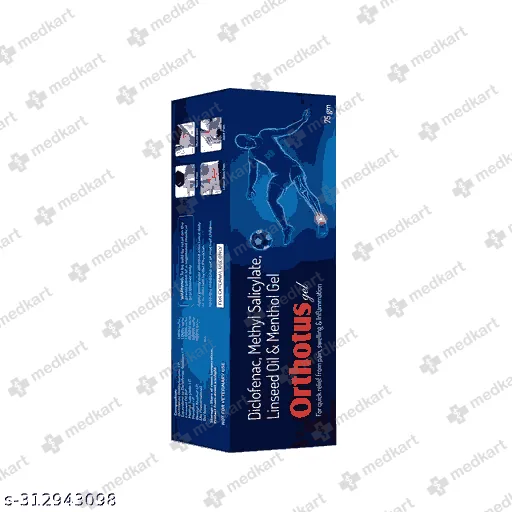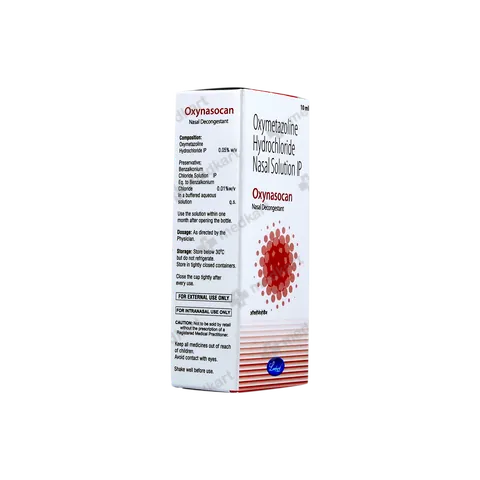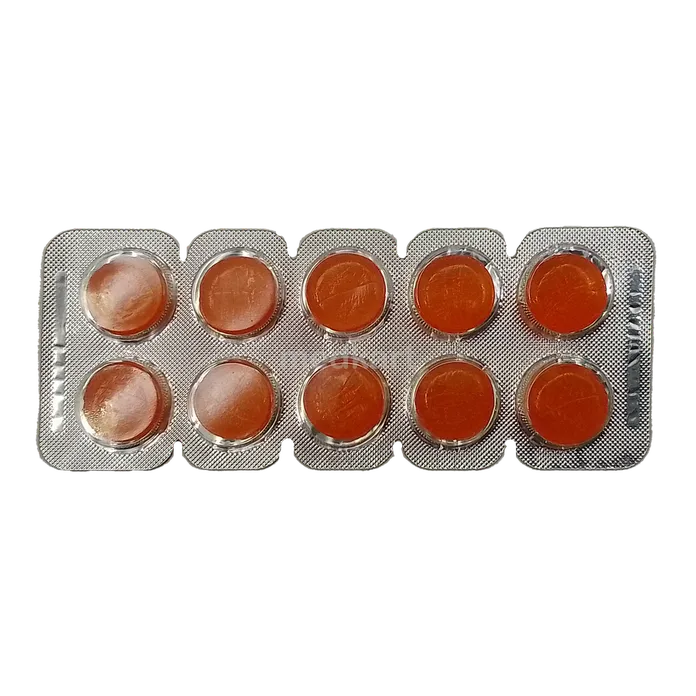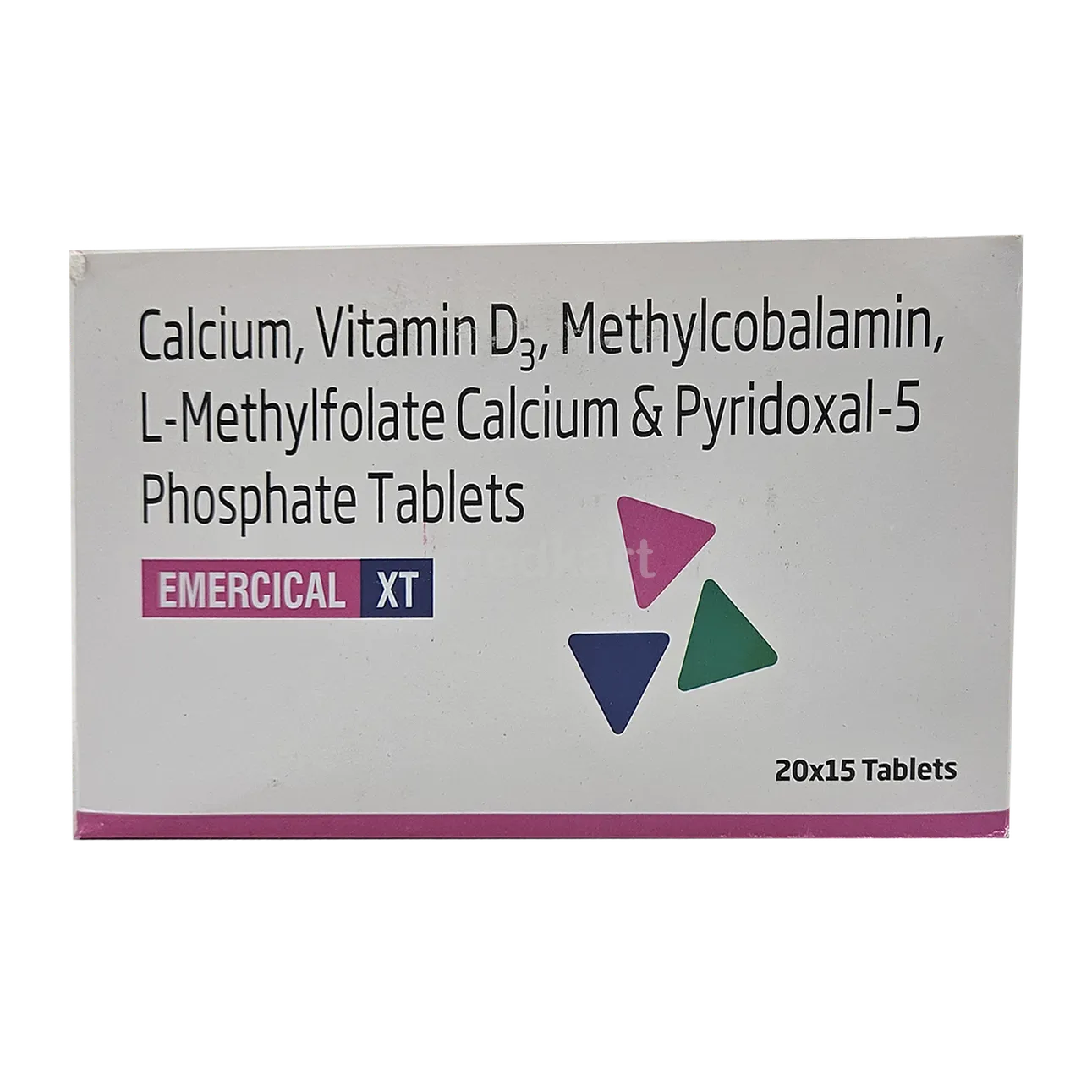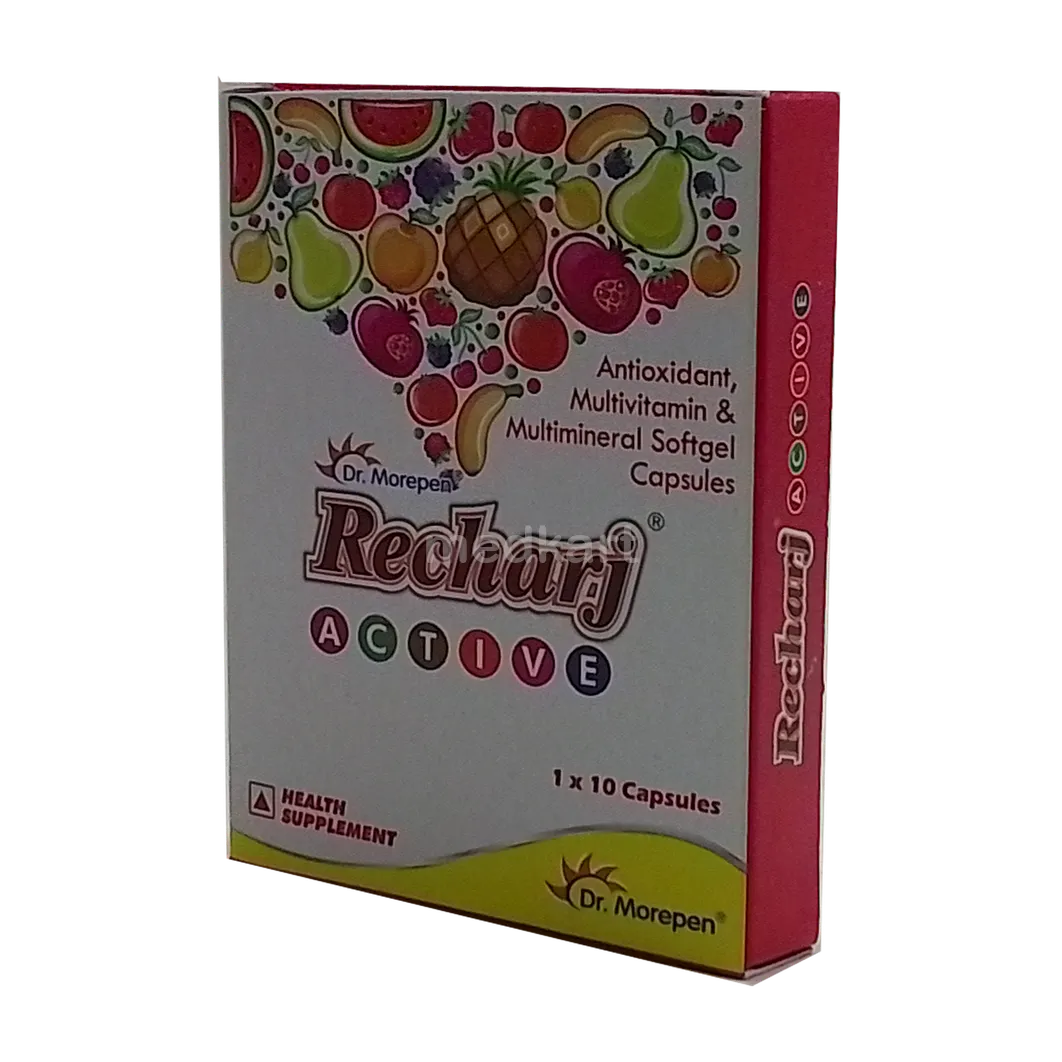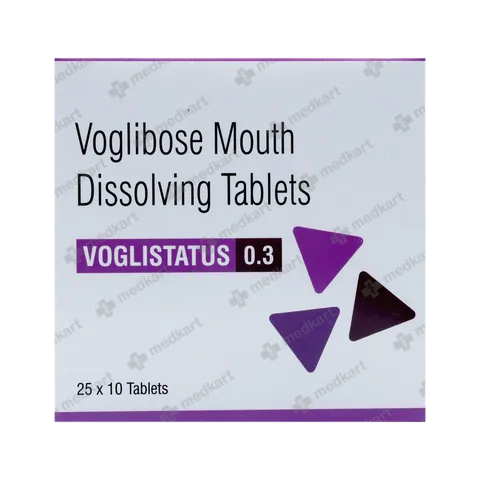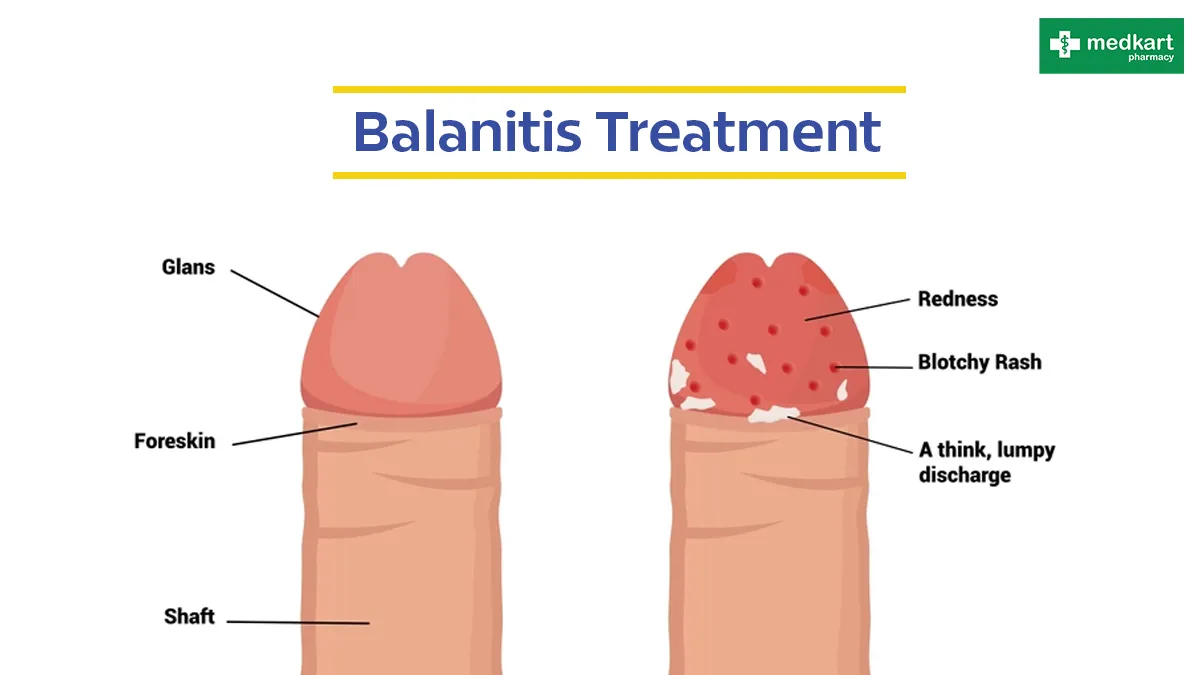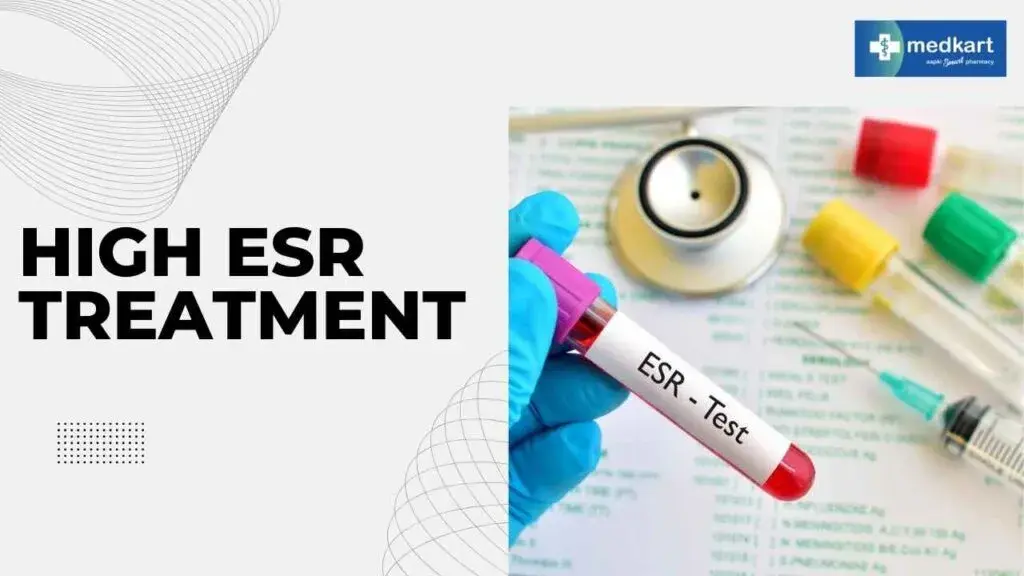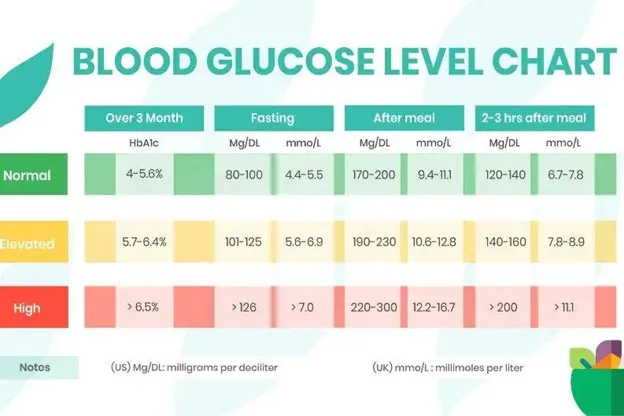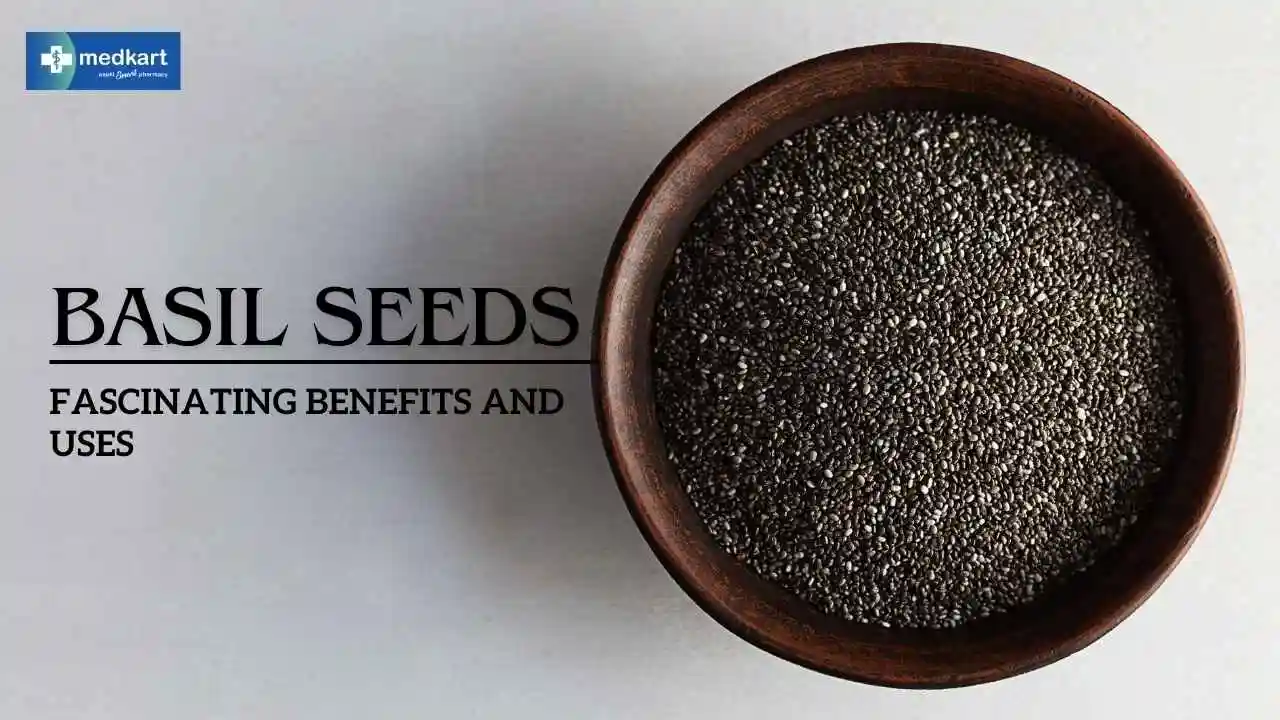Prescription Required

Authentic Product

India's Leading Generic Pharmacy

Secure Payment
PPG 0.3MG TABLET 30'S
By ABBOTT HEALTH CARE PRIVATE LIMITED
MRP
₹
399.5
₹339.58
15 % OFF
₹11.32 Only /
TabletCheck Delivery
--
Composition
Product Details
About PPG 0.3MG TABLET 30'S
PPG 0.3MG TABLET 30'S is a prescription medicine that belongs to the class of drugs known as alpha-glucosidase inhibitors. It is primarily used to control high blood sugar levels in patients with type 2 diabetes mellitus.,The medication works by inhibiting the action of enzymes in the small intestine that break down carbohydrates and sugars. This slows down the digestion and absorption of carbohydrates and sugars, leading to a slower and more gradual rise in blood sugar levels after a meal.,PPG 0.3MG TABLET 30'S is usually taken with the first bite of each main meal. The dosage and frequency of the medication depend on the patient's age, medical history, and response to treatment. It is essential to follow the doctor's instructions carefully and not to exceed the prescribed dose.,Common side effects of PPG 0.3MG TABLET 30'S include flatulence, abdominal discomfort, diarrhea, and nausea. These side effects are usually mild and go away on their own after a few days of treatment. If the side effects persist or worsen, it is important to inform the doctor immediately.,PPG 0.3MG TABLET 30'S is not recommended for patients with a history of intestinal obstruction, chronic digestive disorders, or kidney or liver disease. It should also be used with caution in patients taking insulin or other blood sugar-lowering medications.,In conclusion, PPG 0.3MG TABLET 30'S is a prescription medication used to control high blood sugar levels in patients with type 2 diabetes mellitus. It works by slowing down the digestion and absorption of carbohydrates and sugars. While the medication is generally safe and effective, it is important to follow the doctor's instructions carefully and report any side effects or concerns.
Uses of PPG 0.3MG TABLET 30'S
- Is used to treat 2 Types of Diabetes
- prevents from the development of 2 diabetes
- Is used to treat Postprandial Hyperglycemia
How PPG 0.3MG TABLET 30'S Works
- PPG 0.3MG TABLET 30'S slows down digestion and absorption of carbohydrates and sugars, resulting in a more gradual rise in blood sugar levels after meals.
- Normally, after a meal, carbohydrates and sugars are broken down into simple sugars such as glucose. The glucose is then absorbed into the bloodstream, causing an increase in blood sugar levels. In patients with type 2 diabetes mellitus, this increase in blood sugar levels is more significant due to insulin resistance or insufficient insulin production.
- PPG 0.3MG TABLET 30'S blocks the enzymes that break down carbohydrates and sugars, delaying their absorption into the bloodstream. As a result, there is a slower and more gradual rise in blood sugar levels after a meal. This helps to control blood sugar levels and prevent the spikes in blood sugar that can occur in patients with type 2 diabetes mellitus.
Side Effects of PPG 0.3MG TABLET 30'S
- Flatulence
- Abdominal bloating
- Diarrhea
- Stomach discomfort
- Nausea
- Vomiting
Dosage of PPG 0.3MG TABLET 30'S
- For Children: The dosage of PPG 0.3MG TABLET 30'S for children is not established and should be determined by a pediatrician or endocrinologist based on individual factors such as age, weight, and medical history. It is important to follow the doctor's instructions regarding dosage and timing of medication. PPG 0.3MG TABLET 30'S is typically not recommended for use in children under the age of 18.
- For adults: The usual dose of PPG 0.3MG TABLET 30'S for adults is one tablet taken orally three times a day, immediately before each main meal. The dosage may be adjusted by your doctor based on your blood sugar levels and response to treatment. It is important to follow your doctor's instructions regarding dosage and timing of medication. Do not exceed the recommended dose and do not stop taking the medication without consulting your healthcare provider.
How to store PPG 0.3MG TABLET 30'S?
- Store PPG 0.3MG TABLET 30'S at room temperature, between 15°C to 30°C (59°F to 86°F).
- Keep the medication in its original packaging until you are ready to use it.
- Do not expose PPG 0.3MG TABLET 30'S to excessive heat, moisture, or direct sunlight.
- Keep PPG 0.3MG TABLET 30'S out of reach of children and pets.
FAQs
What is PPG 0.3MG TABLET 30'S used for?

PPG 0.3MG TABLET 30'S is used to treat type 2 diabetes mellitus in adults.
How does PPG 0.3MG TABLET 30'S work?

PPG 0.3MG TABLET 30'S works by increasing the release of insulin from the pancreas and reducing the production of glucose by the liver.
How should I take Advog 0.2mg Tablet?

PPG 0.3MG TABLET 30'S should be taken orally, with or without food, as directed by your healthcare professional.
What should I do if I miss a dose of Advog 0.2mg Tablet?

If you miss a dose of Advog 0.2mg Tablet, take it as soon as you remember. If it is almost time for your next dose, skip the missed dose and take the next dose at the scheduled time.
What are the possible side effects of Advog 0.2mg Tablet?

The possible side effects of PPG 0.3MG TABLET 30'S include hypoglycemia (low blood sugar), gastrointestinal side effects such as diarrhea and stomach discomfort, and allergic reactions. Consult your healthcare professional if you experience any side effects.
Can I take PPG 0.3MG TABLET 30'S if I am pregnant or breastfeeding?

PPG 0.3MG TABLET 30'S should not be used during pregnancy or breastfeeding unless absolutely necessary. Consult your healthcare professional before taking the medication.
What should I do if I experience symptoms of hypoglycemia?

If you experience symptoms of hypoglycemia such as dizziness, sweating, or confusion, consume a quick source of sugar such as a glucose tablet, fruit juice, or candy. Consult your healthcare professional if you experience frequent episodes of hypoglycemia.
Can I drink alcohol while taking Advog 0.2mg Tablet?

Drinking alcohol can increase the risk of hypoglycemia, so it is recommended to limit or avoid alcohol consumption while taking Advog 0.2mg Tablet.
Can PPG 0.3MG TABLET 30'S be taken with other medications?

PPG 0.3MG TABLET 30'S may interact with other medications, so it is important to inform your healthcare professional about all medications you are taking before starting the medication.
Ratings & Review
Good staff and all generic medicines are available.👍
DALPAT PARMAR
•
Reviewed on 19-01-2024
(5/5)
(Translated by Google) This is the right medkart for generics. (Original) Generic ke liye ye sahi hai medkart
Pravas Ranjan Acharya
•
Reviewed on 24-05-2023
(2/5)
Had a good experience when I went for purchasing medicine. Appreciate the service
Chitrang Shah
•
Reviewed on 07-11-2022
(5/5)
It is very quickly & Fast process . Nice guidance
Dharmesh Patel
•
Reviewed on 26-01-2024
(5/5)
Good discounts available for all medicine.
Akash Patel
•
Reviewed on 01-12-2023
(4/5)
Marketer / Manufacturer Details
ABBOTT HEALTH CARE PRIVATE LIMITED
Country of Origin -
India
Alternatives
Customer Also Bought
Related Blogs
Disclaimer
Medkart's sole intention is to ensure that its consumers get information that is expert-reviewed, accurate and trustworthy. However, the information contained herein should NOT be used as a substitute for the advice of a qualified physician. The information provided here is for informational purposes only. This may not cover everything about particular health conditions, medicines, generic alternatives, all possible side effects, drug interactions, warnings, alerts, lab tests, etc. Please consult your doctor and discuss all your queries related to any disease or medicine. We intend to support, not replace, the doctor-patient relationship.
India's most trusted generic medicine pharmacy.
10 Lakh+
Happy customers
35000+
Pin-codes Covered
75 Lakh+
Orders Delivered
Authentic Products
All WHO-GMP Certified Medicines
Download the app for free
©2025 Medkart Pharmacy. All Rights Reserved
